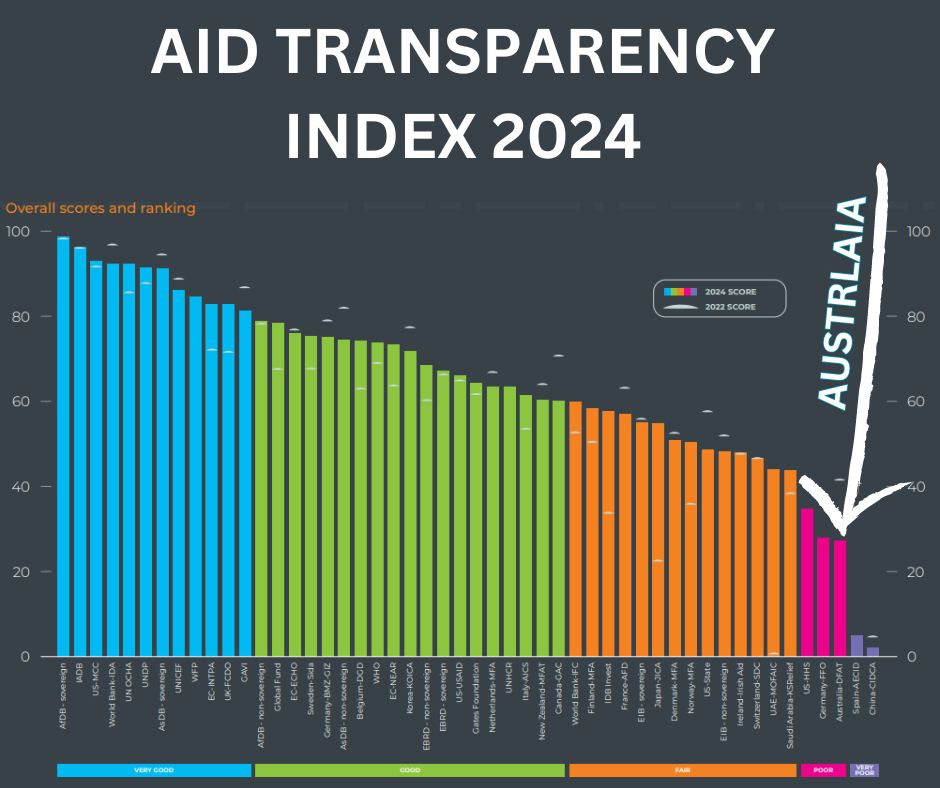
Australia has fallen to third last, 48th out of 50, on the 2024 IATI Aid Transparency Index.
The drop in the 2024 index marks the third consecutive drop for Australia, and the first time that Australia has been ranked as ‘Poor’ by the index. According to the IATA, the main reason for the drop is data not submitted for 2023. “Australia’s Department of Foreign Affairs and Trade (DFAT) published no 2023 IATI activity data, although it did publish up to date organisation documents in its IATI file. This meant it dropped 14.7 points and fell one category, from ‘fair’ to ‘poor’.”
Comparatively, New Zealand ranks 30th, and the Asian Development Bank (ADB) (Sovereign) is at 17th, USAID is 25th, while US Millenium Challenge Corporate ranks 3rd. UK FCDO is equal 10th and Korea is 22nd. At the top of the index sits many multilateral banks and agencies, like the World Bank and the African Development Bank.
Across the board, Reliefweb highights that global aid transparency is at an all-time high. This increase in transparency allows for better tracking of how aid funds are allocated and used, ensuring that resources reach those in need efficiently. The improvements are attributed to the concerted efforts of various aid organizations and multilateral institutions to enhance their reporting practices and openness. This trend is crucial for maintaining accountability, fostering trust, and improving the overall effectiveness of international aid.
Both the Australian Council for International Development (ACFID) and the Development Policy Centre have expressed concern over the continuing decline for Australian Aid transparency. They emphasize that transparency is fundamental to effective aid delivery and rebuilding trust.
The IATI Aid Transparency Index is a critical tool that measures the transparency of major development agencies worldwide. It evaluates how openly and effectively these organizations report their aid data, including how funds are spent and the outcomes achieved. The index is vital for promoting accountability and improving the effectiveness of aid, allowing stakeholders to track progress, ensure responsible use of resources, and build trust between donors and recipients.


